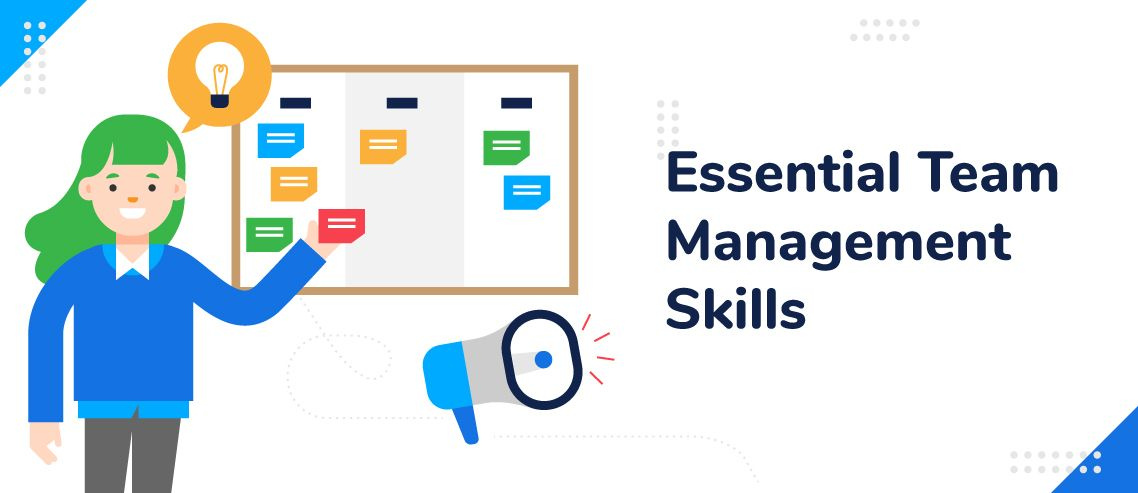23 Ways to Maintain a Positive Attitude at Work in 2024

87% of employers prioritize a positive work attitude over academic qualifications. What’s more, 95% of employees believe the work culture of a company is more important than the compensation they receive.
Clearly, positivity at work isn’t only something employers seek, but it is also a top priority among employees.
In this post, we’ll share 23 effective ways in which employees can maintain a positive attitude at work. Make sure to share them with your team!
1. Sleep Well
Adults need to sleep seven to nine every night. If you sleep less than seven hours, you’re likely to wake up in a bad mood and make mistakes at work.
Both of these can greatly hinder your attempts to maintain a positive attitude.
What’s more, in addition to enhancing mood regulation, emotional resilience, and cognitive function, adequate sleep also improves:
- Memory consolidation
- Problem-solving
- Creativity
- Decision-making
- Interpersonal skills
- Teamwork
- Communication
This, in turn, reduces errors, boosts productivity, and contributes to an overall positive work environment.
2. Develop a Refreshing Morning Routine
92% of highly successful people have a well-planned morning routine. To cultivate an effective morning routine, consider the following best practices:
- Allocate two hours for your morning self-care routine if you have a long schedule ahead or one hour if you have a shorter work schedule.
- Resist the urge to check emails or engage in other stress-inducing tasks immediately upon waking.
- Incorporate something enjoyable or uplifting into your routine. This can be exercise, a nourishing breakfast, connecting with loved ones, or even quality time with a pet.
Psychologists believe that a well-planned morning routine can help you have a happy and productive day, allowing you to maintain a positive attitude at work.
3. Take Care of Your Diet
Your diet influences your mood at work. Try opting for nutrient-rich foods as they contribute to optimal brain function and mood regulation.
For example, fish and nuts contain omega-3 fatty acids. These are associated with lower rates of depression. Similarly, a study revealed that a Mediterranean diet (rich in fruits, vegetables, and whole grains) is linked to a lower risk of depression.
Staying hydrated is also crucial — even mild dehydration can impact mood and cognitive performance, according to a study published in the Journal of the American College of Nutrition.
4. Practice Gratitude
Gratitude is the practice of actively acknowledging the good things in life — no matter how big or small. Several experiments have been conducted to date that prove gratitude can help:
- Improve sleep quality
- Reduce stress
- Increase the effectiveness of medicines and treatments
- Release toxic emotions
- Reduce pain
- Regulate anxiety and depression
These benefits can improve your psychological and physical health, and thus help you maintain a positive attitude at work.
You can begin practicing gratitude at work by leaving thank you notes or emails for colleagues and celebrating your and your team’s wins.
If you’re an employer, you can arrange gratitude workshops and team appreciation sessions to foster a positive work attitude.
5. Avoid Sarcasm
Sarcasm is a destructive power at work. It destroys psychological safety for your teammates and promotes negative energy. When your peers start feeling drained in your presence, they’ll distance themselves and start avoiding you. They may even limit their creativity around you.
This will not only leave you isolated but will also have a negative impact on your repute and overall performance.
You won’t be able to give your best or maintain an optimistic attitude, so avoid sarcasm at all costs.
6. Avoid Complaining
According to Will Bowen’s A Complaint Free World, an average person complains 15-30 times a day.
According to another study, if you complain for more than 30 minutes per day, you damage the hippocampus region of your brain.
Plus, you’re not only physically and mentally harming yourself, but you’re also making yourself unwanted in gatherings by complaining.
A good way to deal with your problems is to try calming down. If you need to communicate a complaint to an authority, make sure you begin communicating the issue with a positive statement and end it with a positive statement. It reduces the negative influence of the complaint.
7. Use Positive, Inclusive Language
Using positive language, infused with optimism and encouragement, triggers the brain’s release of feel-good neurotransmitters like endorphins. This will uplift your spirits as you speak and influence the emotional tone of the conversation.
Along the same lines, inclusive language (acknowledging diverse perspectives) creates a sense of belonging and psychological safety. This enhances team cohesion and results in a collaborative and supportive work environment.
8. Appreciate More Often
When you appreciate something or someone, your brain releases dopamine and serotonin, which are neurotransmitters associated with pleasure and well-being. This creates a positive feedback loop and enhances mood and overall mental health.
So, the more you appreciate, the more your brain becomes skilled at recognizing and amplifying positive experiences. Plus, appreciating others also strengthens your relationship with them.
9. Take Breaks
Contrary to the common belief that constant work leads to heightened productivity, neuroscience says strategic breaks are essential for optimal brain function.
Our brains operate in cycles of focused attention and rest known as ultradian rhythms. Neurotransmitters like acetylcholine replenish during breaks, which enhances cognitive performance.
Short breaks also prevent cognitive fatigue, which can prevent anger outbursts and bad attitudes that come with tiredness.
10. Set Up Visual Reminders
Consider setting up visual reminders for positivity in your workspace to serve as constant motivators. This could include:
- Inspirational quotes: Place motivational quotes that resonate with you on your desk or wall. These serve as daily affirmations and encourage a positive mindset.
- Vision board: Develop a vision board with images and words representing your goals. Regularly updating it keeps your aspirations at the forefront of your mind. This helps maintain a proactive and optimistic outlook at work.
- Achievement display: Create a visual representation of your accomplishments. Whether it is a chart, graph, or a display of completed projects, visual evidence of your success can boost morale and serve as a motivator.
11. Learn New Things
Learning stimulates the release of neurotransmitters like dopamine, which enhance motivation and mood and can help you maintain a positive attitude at work.
Consider embracing a continuous learning mindset by exploring online courses, webinars, and skill-exchange sessions with colleagues.
If you prefer self-learning, consider exploring industry-related articles, self-help books, and fiction to broaden your perspective and stimulate creativity.
12. Try Connecting with Colleagues
Developing deep and meaningful connections at work will make you want to go to your job every day. You’ll be eager to see the people who understand you and vice versa.
This will make maintaining a positive attitude at work almost natural and contribute to an overall positive, supportive, collaborative work environment.
13. Avoid Negativity
Negativity is contagious. Some people, social media, and news outlets are constant sources of negativity in your life. If you wish to maintain a positive attitude at work, identify these sources and eliminate them.
It’s also worth noting that three out of every four Americans admit to having worked in a toxic environment. This means you’ve to be vigilant at work too — if a colleague enjoys bringing you down, behaves rudely, disrespects, bullies, or projects negativity in any other way, make sure to avoid them.
14. Volunteer & Give Back
If you feel you spend monotonous days, engage in volunteering activities within your company or outside of it. Contributing to the well-being of others will instill a sense of purpose and fulfillment in you, and bring about a meaningful dimension to your life.
This altruistic perspective will reflect in your everyday behavior and help you maintain a positive attitude at work.
15. Practice Empathy
Empathy is the ability to understand others’ feelings. For example, let’s say someone talks to you rudely at work.
Instead of getting offended or bitter about them, empathy will empower you to understand their situation. You’ll begin thinking of ways to help them out if possible.
Doing so will strengthen your relationship with them and help you maintain a positive outlook and a good reputation at work.
16. Stay Humble
Humility is the awareness of one’s limitations, a willingness to learn from others, and the ability to acknowledge mistakes without defensiveness.
It allows you to receive suggestions, feedback, and everyday lessons (from peers or mistakes) without getting offended or feeling low about yourself.
This empowers you to stay positive in the face of challenges, helping you remain positive at work.
17. Don’t Take Work Home
Bringing work home messes up work-life balance. You won’t be able to spend quality time with your loved ones or permit your nerves to relax.
The constant stress will accumulate over time, building up frustration. This frustration will eventually reflect in your behavior at work. You’ll find yourself constantly annoyed, irritated, and unable to focus.
So, it’s best to complete work within your work hours. If there’s anything urgent and pending, stay back late for an hour or two and complete it on your desk.
18. Be Open to Feedback
Feedback helps identify your areas of strengths and weaknesses. It’s your gateway to learning opportunities and professional growth.
Therefore, it’s best to seek feedback proactively. It will not only assist you in fostering feelings of positivity but also become your ladder to bonuses and promotions.
19. Inspire and Motivate Others
Even if you’re not a manager, you can lead your colleagues by example. Demonstrate your passion for work and appreciate your colleagues’ efforts — no matter how big or small. Also, encourage open communication, actively listen, and offer constructive feedback.
In this way, you’ll be able to create a positive feedback loop that uplifts your own spirits. It will also make you a source of inspiration and motivation for others.
20. Establish a Daily Affirmation Ritual
Begin each day with self-affirming statements that reinforce confidence and optimism, such as:
- I believe in my abilities
- I am good at my job
- I am open to new opportunities
- I add value to my company
- Today will be a productive day
Science suggests that positive affirmations can reshape neural pathways, enabling a constructive and positive mindset.
This simple ritual can also enhance resilience, reduce stress, and cultivate a consistently positive outlook on life.
21. Implement a ‘Gratitude Jar’ Tradition
Place a jar in a central location with colorful note cards and pens nearby. Encourage colleagues to express gratitude by writing down moments of appreciation, achievements, or positive experiences.
Then, regularly share these notes during team meetings or set a designated time to read them collectively. This will transform the jar into a visual reminder of the team’s collective achievements, contributing to an overall positive work environment.
22. Create a Personal Workspace Oasis
Encourage personalizing workspaces to reflect individual tastes and preferences. This could include small plants, personal photos, or desk accessories that bring joy.
The goal is to create a small sanctuary at work where employees feel comfortable and happy. This can significantly improve mood and productivity.
You can also offer guidelines on appropriate items to ensure professionalism is maintained while allowing personal expression.
23. Perform Mindfulness Exercises
Last but not least, consider introducing mindfulness exercises like deep breathing, meditation, or gentle stretching in your life to reduce stress and enhance focus.
You also want to take short, regular mindfulness breaks during the workday. These can be as brief as five minutes and can be done individually or as a group activity.
As an employer, you can share resources or bring in experts for workshops on mindfulness to help employees learn techniques to stay present and reduce anxiety. This can lead to better decision-making, improved concentration, and a more positive work atmosphere.
JD enjoys teaching people how to use ZoomShift to save time spent on scheduling. He’s curious, likes learning new things everyday and playing the guitar (although it’s a work in progress).



